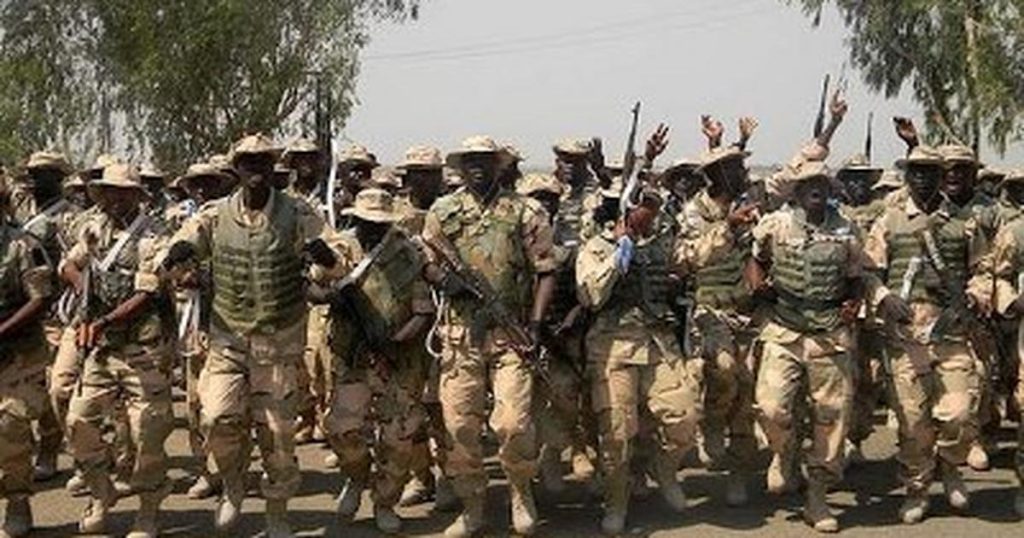The serene landscape of Buni Yadi, a town nestled within the Gujba Local Government Area of Yobe State, Nigeria, was shattered by the eruption of violence as suspected members of the Islamic State’s West Africa Province (ISWAP), a faction splintered from the notorious Boko Haram terrorist group, launched a brazen assault on the 27 Task Force Brigade of the Nigerian Army. This attack, feared to have claimed the lives of at least four soldiers and resulted in the destruction of valuable military assets, unfolded less than a day after the North-East Governors’ Forum concluded a strategic meeting in Damaturu, the Yobe State capital, where they had formulated a comprehensive plan to combat the persistent insurgency plaguing the region. The incident underscores the volatile security situation in the area and the formidable challenge posed by the resilient insurgency. This recent attack follows a disturbing pattern of violence; merely two weeks prior, Boko Haram insurgents were reported to have targeted a military post in the Chalie area of Buni Yadi, leading to the tragic loss of three soldiers.
The unsettling details of the Saturday attack were revealed by a political aide to the Yobe State governor, Mai Mala Buni, who, speaking under the condition of anonymity, confirmed the tragic loss of approximately four soldiers. The attack unfolded as a fierce firefight between the insurgents and the Nigerian troops, resulting in not only the loss of life but also the destruction and compromise of military hardware, including armored tanks and weaponry. This incident highlights the insurgents’ capacity to inflict significant damage and their continued threat to the stability and security of the region. The governor, who was away from the state at the time of the attack, attending a wedding in Katsina State, immediately returned to Yobe State upon receiving news of the incident. This swift action underscores the gravity of the situation and the government’s commitment to addressing the escalating security concerns.
The Nigerian Army, acknowledging the ongoing confrontation, issued a brief statement via its official X (formerly Twitter) handle on Saturday morning. The post confirmed that troops under Operation HADIN KAI, the military’s ongoing counter-insurgency operation in the North-East, were engaged in a fierce battle against ISWAP insurgents in Buni Gari, Yobe State. The brevity of the statement, promising further details at a later time, reflects the rapidly evolving nature of the situation and the military’s focus on containing the immediate threat. Despite attempts to reach the Army spokesperson, Onyechi Anele, for further clarification and details, she remained unavailable for comment at the time of reporting.
The timing of this attack, so closely following the North-East Governors’ Forum’s meeting, serves as a stark reminder of the persistent challenges faced by the region in its struggle against insurgency. The governors’ endorsement of a comprehensive strategy to combat the insurgency underscores the urgent need for collaborative efforts and decisive action. However, the attack in Buni Yadi tragically demonstrates the complex and deeply rooted nature of the conflict, and the ability of insurgent groups to adapt and strike despite ongoing counter-insurgency operations. The recurring attacks in the Buni Yadi area highlight its vulnerability and the need for strengthened security measures.
The continued threat posed by Boko Haram and its splinter factions, such as ISWAP, remains a significant concern for Nigeria and the wider region. The group’s ability to launch attacks against military targets demonstrates its resilience and capacity to disrupt peace and stability. The destruction of military assets further complicates the counter-insurgency efforts, potentially hindering the military’s ability to respond effectively to future threats. The loss of life among the Nigerian soldiers is a tragic reminder of the human cost of this ongoing conflict.
The recurring nature of these attacks underscores the urgent need for a multi-faceted approach to address the root causes of the insurgency. This includes not only military operations but also addressing the socio-economic factors that contribute to the recruitment and radicalization of individuals. It is crucial to prioritize the safety and security of civilians and to ensure that humanitarian assistance reaches those affected by the conflict. A comprehensive strategy should encompass security sector reform, community engagement, and economic development initiatives to foster sustainable peace and stability in the region. Furthermore, regional cooperation and international support are essential to effectively combat the trans-border threat posed by these insurgent groups. The attack in Buni Yadi serves as a stark reminder of the ongoing challenges and the urgent need for continued and strengthened efforts to counter the insurgency and build a more secure future for the region.














